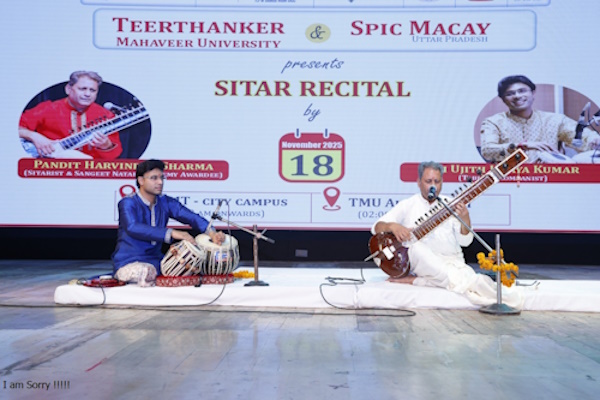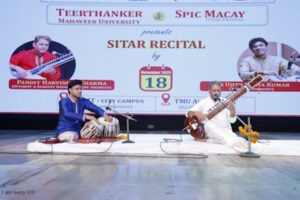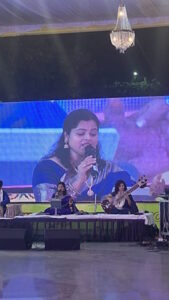y Pandit Pannalal Ghosh, better known as Amal Jyoti Ghosh, was born on 24 July 1911 in Barisal, East Bengal.
Initially his family lived in the village of Amarnathganj which later came to Fatehpur. He was born in a Sangeetsudhi family. His father Akshay Kumar Ghosh was a sitar player and his mother Sukumari was a singer. Harmonium maestro Khushi Mohammad Khan was his first guru and he also received education from Khayal singer Pandit Girja Shankar Chakraborty and Ustad Alauddin Khan Sahab. In 1940, Pannababu married renowned playback singer Parul Ghosh, sister of music director Anil Biswas. Earlier in 1938, Pannalal Ghosh visited Europe and was one of the first classical musicians to perform abroad.
Pannababu is considered the father of classical flute. It would be appropriate to call him the Messiah of flute, who is credited with establishing flute from a folk instrument to a classical instrument. The result of his tireless efforts was that his first LP was released in 1930. The coming centuries can never forget the work of Panna Babu. It is due to his efforts that Krishna Kanhaiya’s flute has an important place in today’s fusion music.
Panna Babu had started the work of establishing flute as a classical instrument in the hearts of people and flute players like Pandit Hariprasad Chaurasia made this instrument popular in foreign countries. Pannalal ji also played flute in many films, which is unique even today. In which many famous films like Mughal-e-Azam, Basant Bahar, Basant, Duhai, Anjaan and Andolan are prominent, with the music of which Pandit Pannalal Ghosh’s name was associated. Pannababu left this world forever on 20 April 1960, leaving the incredible legacy of the traditional Indian musical instrument flute in the hands of his disciples and admirers. When we listen to Pannalal ji’s flute even today, there is no comparison to its sweetness and variety. When today we listen to the raga Marwa and other ragas played by him, we start feeling spiritual.
Share this content:












Post Comment